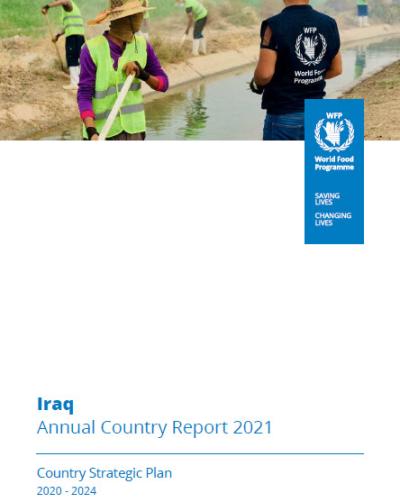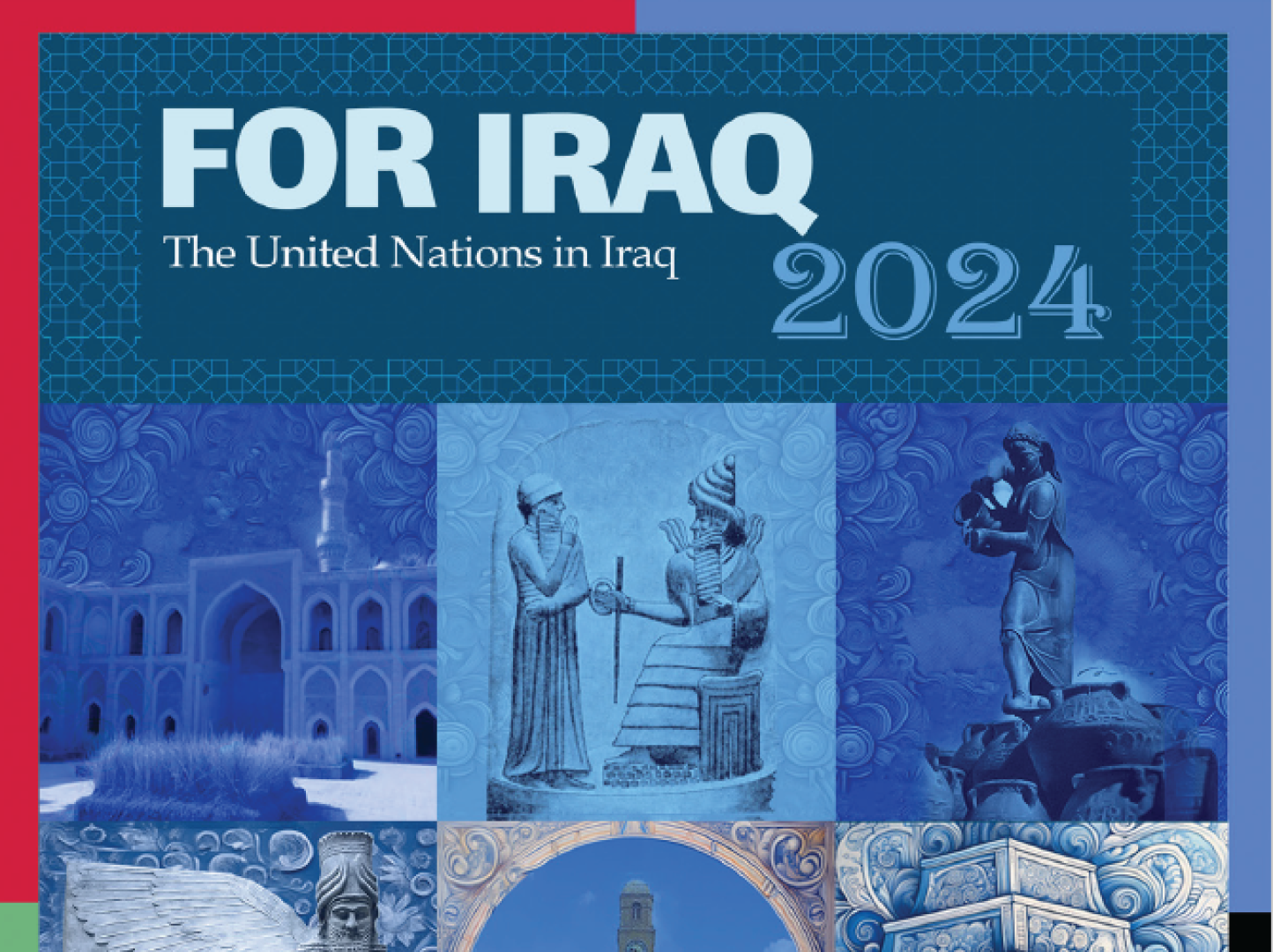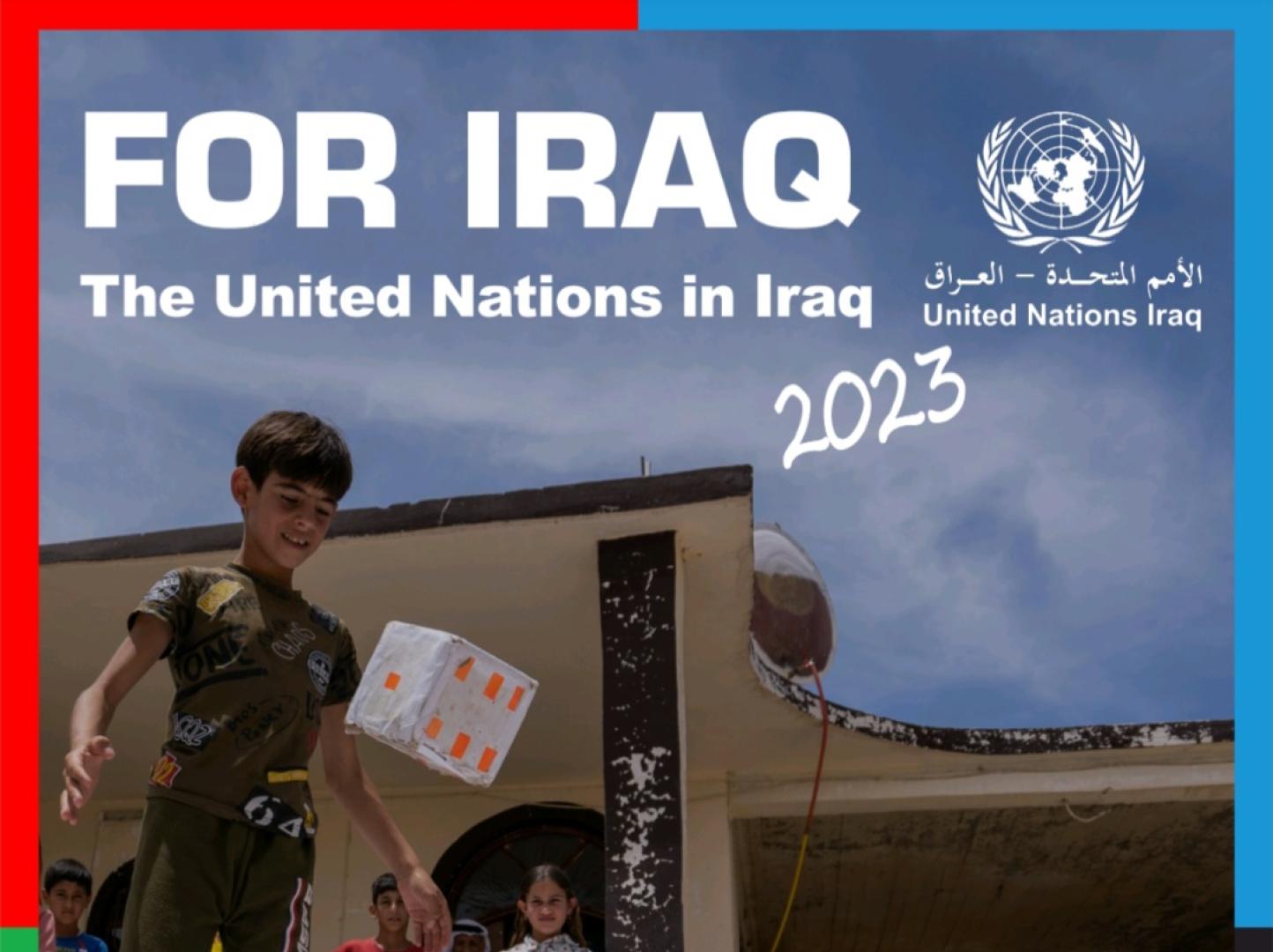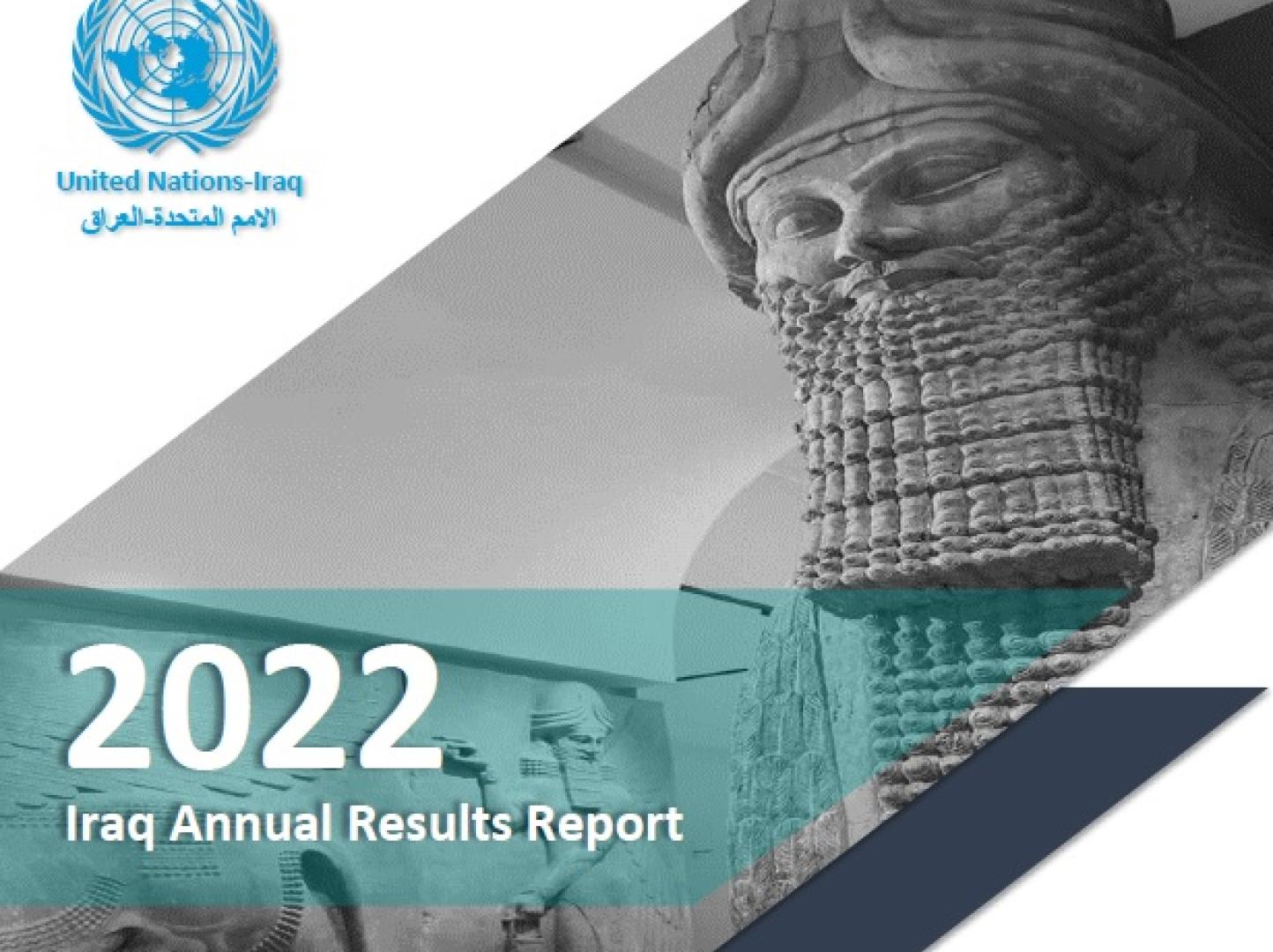Iraq | Annual Country Report 2021 | WFP

Overview
2021 was a challenging year for Iraq: recovery was hampered by climate change, record water shortages, high unemployment rate and volatile security. In October 2021, Iraq successfully held parliamentary elections amid several hurdles. While no major security incident occurred, some parties disputed the results, causing protests and uncertainty.
Following the 2020 budget crisis, the Government continued implementing its White Paper, which lays the foundations for essential reforms required to strengthen Iraq’s economy and social services.
WFP successfully supported 652,800 women and men, girls and boys across its life-saving and life-changing activities in Iraq in 2021, the second year of the Country Strategic Plan (CSP 2020-2024).
WFP expanded resilience building and livelihoods initiatives for communities in southern Iraq confronted by poverty and climate change. In areas that witnessed heavy displacement, WFP supported the Government of Iraq to implement reforms in social protection, and continued to assist internally displaced people (IDPs) and Syrian refugees. More IDP camps closed and families returned to their areas of origin, or integrated into host communities, however, some prematurely relocated families faced challenges in meeting their food needs. WFP adapted its assistance accordingly to support food insecure IDPs no longer residing in formal camp settings. To help returnee families rebuild their lives, WFP's rural and urban livelihoods approaches, including programmes for youth, helped people grow self-reliance.
WFP’s investment in a longer-term approach to strengthen the resilience of IDPs, refugees and vulnerable people and promote their self-reliance has been three-fold: rural and urban livelihoods initiatives, vocational skills trainings, and WFP’s ‘EMPACT’ (‘Empowerment in Action!') digital skills and English training.
WFP reached 104,300 people and hundreds of thousands more indirectly in the communities with livelihoods and training initiatives. Given the ongoing pandemic, 2021's urban livelihoods activities evolved to support people in need of vocational skills training and work opportunities in vulnerable communities. The projects provided small business
grants to foster entrepreneurship and help local economies flourish. Rural livelihoods 'Food Assistance for Assets' programmes, with an emphasis on climate-smart activities, provided vulnerable smallholder farmers and their communities with key tools, equipment and support to help households become self-sufficient again. WFP champions
its participants who, after returning to their areas of origin, worked hard and restored water channels, rehabilitated lands and used modern farming methods to restore livelihoods. The projects also contribute to durable solutions in collaboration with the United Nations (UN) and local partners under the decentralised Area-based Coordinator's approach.
WFP’s ‘EMPACT’ innovatively continued online due to the pandemic, with EMPACT graduate young Syrian refugee Ziney winning a Pink Lady Food Photographer of the Year award [1].
Although the school feeding programme remained suspended for most of 2021 due to COVID-19 measures, WFP assisted 262,100 schoolchildren by the end of 2021. WFP proactively worked with the Ministry of Education to hand over the programme, with a partial transition of 40 percent of operations to direct implementation by the Government
in the 2021-22 academic year. WFP provided technical advisory and procurement support informed by years of experience of delivering school feeding programmes in Iraq and worldwide. In parallel, WFP, United Nations International Children's Fund (UNICEF) and partners introduced a pioneering 'Girls Education' project in Basra to help
over 2,500 girls from financially struggling families complete their studies.
As part of the digitalization of the Public Distribution System for food rations (PDS), the ‘Tamwini’ ('My Food Ration') smartphone application was soft-launched to a larger audience by the Ministry of Trade and WFP. The application enables citizens to update their personal data using their smartphones instead of travelling to faraway locations. The
innovation is part of WFP's activities supporting social protection reform, towards a single registry of families in most need of assistance.
WFP continued to work closely with the host and donor governments, UN partners, World Bank and non-governmental organisations to ensure ongoing capacity strengthening and complementarity of interventions. WFP co-led the Food Security Cluster and Cash Working Group, continuing to contribute to the efforts of the wider humanitarian and
development community.
In October, WFP Iraq successfully completed the Gender Transformation Programme for achieving benchmarks of gender equality and women’s empowerment across its work. WFP remains a strong proponent of both gender mainstreaming and conflict sensitivity in all aspects of its programmes.





